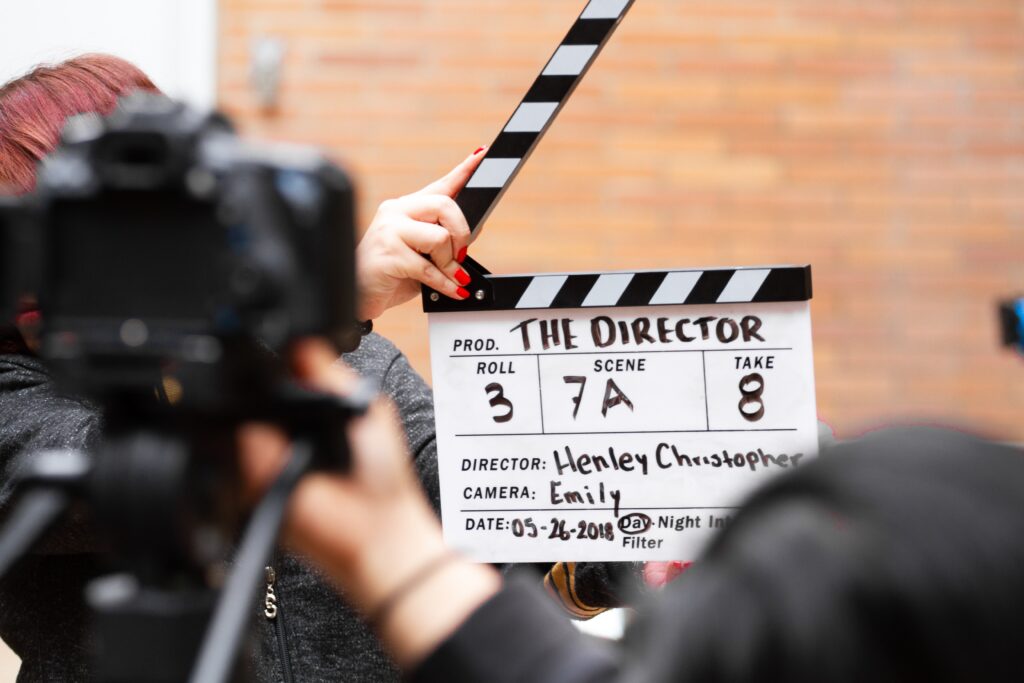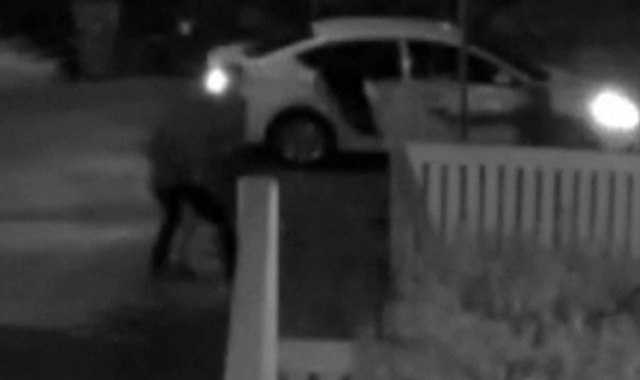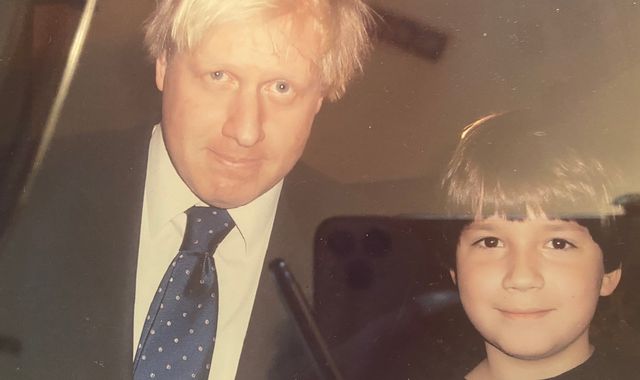Framing Britney Spears: The court battle, the protests, and the ‘glee in her suffering’
Written by News on 08/02/2021
In November 2007, just months after images of her shaved head and umbrella attack on a paparazzi car had made front pages around the world, Britney Spears was back in the charts with album Blackout and the single Piece Of Me.

A response to the intense press hounding that had followed her since she released her debut single …Baby One More Time as a pigtailed schoolgirl aged 16 in 1998, the lyrics told a story of a woman desperate to reclaim her privacy, a star known to the world as “Mrs Oh my God, that Britney‘s shameless!”
Arguably the biggest pop star of her era, at that time in her life she was also a mother to two young boys, her eldest not long turned two years old. But it only served to fuel interest. “Guess I can’t see no harm, in working and being a mama/ And with a kid on my arm, I’m still an exceptional earner/ You want a piece of me,” she sang. Whether they came from Spears herself or songwriters capitalising on the interest around her, the words were a bleak truth, belied by catchy electro-pop.
Not long afterwards, Spears was placed under a court-sanctioned conservatorship, her father, Jamie Spears, running the show. What was supposed to be a temporary order has now been in place for 13 years, with many aspects of the star’s life, career and finances – she is reported to be worth about $60m (£43m) – out of her hands.
While clearly an unusual step, it seemed from the outside at least to be working to some extent, if not completely harmonious; Spears went on to release four more albums and held a multimillion-dollar residency in Las Vegas under the order, also known as a guardianship.
But in recent years, the voices of fans questioning the legal ruling, calling to #FreeBritney, have been growing louder. In August 2020, a Los Angeles court heard Spears’ request to end her father’s strict control. At another hearing in November 2020, her lawyer told the court the star was scared of her father and will never resume her singing career while he has power over it.
In Framing Britney Spears, a new documentary by The New York Times, director and producer Samantha Stark aims to fill in some of the gaps about the conservatorship and the ongoing court battle.
“Originally we pitched it as a look back at media coverage of Britney,” she tells Sky News. “A lot of it when you look at it through a 2020 lens – it was 2020 [when the documentary was made] – it’s so appalling, misogynistic, surprising that, you know, late-night hosts are making fun of a teenager’s breasts. Would we do that today?”
But as filming was under way, the conservatorship became the bigger story. “These court documents dropped where Britney indicated that she didn’t want her father in charge of her money anymore. And that was a huge thing.”
Of course, the first person you want to speak to when making a documentary about Britney Spears is the woman herself. But that proved impossible.
“Since she entered into this conservatorship in 2008, it’s been really hard to interview her,” says Stark. “What we’ve heard is that journalists who interview her do so under watch from her team and it’s very regulated… [With] Britney, there’s this cone of silence around her.”
While legal proceedings are taking place, it is standard for those involved not to speak out publicly. But Stark says she does not know whether Spears is even aware of attempts to make contact.
“It feels impossible to get in touch with her directly and so we asked, many times, everyone around her that we could possibly find, we had a spreadsheet of hundreds of people… and it’s just really unclear if she actually saw the requests, if she had the opportunity to see them, given the restrictions around her.”
At the beginning of 2019, Spears announced an “indefinite work hiatus”, revealing her father had been in hospital and “almost died” due to health problems. “It’s important to always put your family first,” said her post on Instagram, adding: “We’re all so grateful that he came out of it alive.” Now, the pair are locked in a bitter court battle.
Like many aspects of Spears’ story, it is impossible to know the full truth of what is actually going on behind closed doors. Stark says she has been told father and daughter are not on speaking terms.
“We went through hundreds of hours of archival footage, we went through every newspaper article, photos, everything, and it’s hard to find Jamie in any of them at the beginning of her career,” she says. “So it was kind of surprising when he came in 2008 and then was a huge part of her life because he was in charge of making decisions.”
Stark was in court for the hearing in November. Spears herself has not appeared for the sessions and statements are made through her court-appointed lawyer, Samuel Ingham.
On the days hearings take place, fans will surround the court building, #FreeBritney placards held aloft. Jamie Spears has reportedly described the movement as “a joke”, but celebrities including Cher and Miley Cyrus have backed the fans. Many have done their own investigative work, and there are even theories that Spears is trying to send messages through social media, that certain colours in her Instagram pictures or her video dances have different meanings.
“It’s easy for people to make fun of that,” says Stark. “Those are just some theories that a lot of media picked out and it was repeated over and over, that’s not the majority of the people.”
The journalist says that through the course of her research, she herself has been checking Spears’ Instagram page “every day for updates, because it really appears to be the only way she can connect to the world. She’s not speaking. There’s so many people around her… I definitely understand why you would look at her Instagram and want to know what she’s thinking. And we don’t even know if she controls her Instagram, you know?”.
Many dismiss the fans and the #FreeBritney movement, but Stark says they are raising valid and vital questions about the conservatorship system. As one interviewee puts it in the trailer for the documentary: “Anytime there’s that amount of money to be made, you have to question the motives of everyone close to that person.”
A conservatorship in the US is most often used for elderly people with dementia, says Stark. “The idea is that people will try to take advantage of people with Alzheimer’s and get them to sign over their money to them or change their wills. And so a child of somebody with Alzheimer’s can file to have this so that they can control the money so the person’s not taken advantage of. It’s really a unique situation that somebody who is 26 was put in one of these.”
What Spears herself thinks of the movement again is hard to say. In one court filing, Mr Ingham said she welcomed the “informed” support of her fans and described the media and social media scrutiny of the case as “reasonable”.
“That made a lot of these fans who had been acting on kind of this gut instinct that something was wrong, feel validated,” says Stark.
While some records from court have been made public, many are sealed and some hearings have taken place in private, making it “really hard as a journalist to try to figure out how this all happened and why”, says Stark. There are many questions. Spears pays for an attorney she wasn’t able to choose. She pays for her conservators. Is there a conflict of interest?
Why, when Spears was able to hold down a Las Vegas residency, “jumping through fire, performing” and bringing in millions of dollars, is she deemed incapable of making “basic decisions”? She is clearly capable of making the decision not to perform.
Stark says she has spoken to many early insiders for the documentary, including Kim Kaiman, a former marketing executive at Jive Records, the label Spears was signed to in her early years; Kevin Tancharoen, a dancer who directed the star’s Onyx Hotel tour when he was just 19, and former stylist Hayley Hill. The story from all was that back then, Spears was very much in control.
“Britney was shamed for her sexuality at a very young age,” but learned, Stark was told, that she would never please everyone. With that understanding came empowerment.
“I think a lot of people think Britney was a puppet and so many of the people we talked to are like, that is totally not true,” says Stark. “She knew exactly what she was doing. She had control over her music. She had control over her image, her videos. And that’s quite a contradiction to now.”
A face that fans may recognise is that of Felicia Culotta, Spears’ family friend and former assistant, who appeared as the teacher in the ….Baby One More Time video.
“She has travelled with Britney, been really close with Britney, slept in the same hotel room with her as her chaperone when she was younger, and was still working in Vegas when she was doing her residency,” says Stark. “It was kind of like she was breaking her silence because she hadn’t accepted interview requests for years.”
Culotta shares the story of her time with the “smalltown girl from Louisiana” and says she agreed to the interview to remind people why the world “fell in love” with the star.
“I didn’t then, nor do I now, understand what a conservatorship is,” Culotta says in a clip. “Especially for somebody Britney’s age and somebody capable of so much that I know first-hand she’s capable of.”
Culotta and other interviewees gave a description of Spears as “one of the kindest, most non-judgemental people”, a “stop-and-smell-the-roses kind of girl” who “wants to see the good” in everyone. “I heard that over and over from people,” says Stark.
But years as a teen idol took their toll. Watching footage of Spears surrounded by paparazzi makes for uncomfortable viewing, especially around the time of her reported breakdown.
“It’s so constant that there’s like a huge circle of almost all men around her all the time,” says Stark. “And no matter where she goes, they’re blocking her.”
We all remember the images of Spears’s shaved head and holding the umbrella. “One of the reasons [the documentary] is called Framing Britney Spears is we wanted to know what was outside of those frames and give you a different idea, because I think a lot of people think, ‘Oh, she shaved her head, she’s crazy’. ‘She attacked a paparazzi, she’s crazy’.”
But the hours, days, months leading up to those freeze-framed moments are rarely considered.
“For hours, they had been following her car as she was trying to get to [ex-husband] Kevin Federline to have him let her in so she could see her kids,” says Stark. “She was going through a custody battle during this time and I think we forget that Britney was a mother.
“There’s a lot of interviews with her from a very young age where she talks about wanting to be a mother. That seems like it was her biggest goal. And, you know, this was a mother who wasn’t able to see her kids, for whatever reason, at that time. You don’t get that from those frames and those tabloid covers.”
Subscribe to the Backstage podcast on Apple Podcasts, Google Podcasts, Spotify, Spreaker
In the past few years, there has been a lot of reassessment of the way those in the public eye are treated in the media, and now social media. The explosion of celebrity culture was explored in December in the BBC documentary series Celebrity, and Spears’ friend, Paris Hilton, shared her own experiences of living with the paparazzi in her documentary, This Is Paris, last year.
Stark says that while mystery still surrounds Spears’ conservatorship, she hopes Framing Britney Spears will encourage people to look at the bigger picture.
“I really hope that when people watch this, they take a step back and reassess their view of who Britney is as a person and as an artist and a woman,” she says. “I hope people also look at how they participated in the media coverage of her. It’s so mean-spirited and there was so much glee in her suffering.
“Why did no one say anything or condemn any of this coverage of her back then? It just felt so normalised. And it wasn’t that long ago.
“So I hope people really take a look at that and about how we treat young women. Number one, I hope people come away with a new understanding of Britney Spears.”
Framing Britney Spears is out now on FX Networks and Hulu in the US
(c) Sky News 2021: Framing Britney Spears: The court battle, the protests, and the ‘glee in her suffering’







